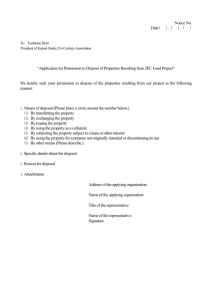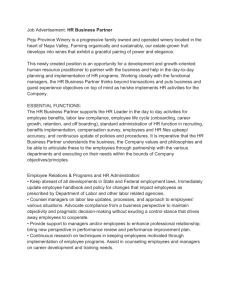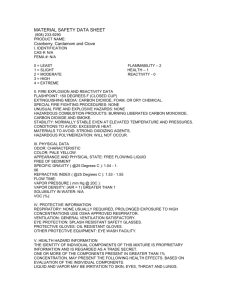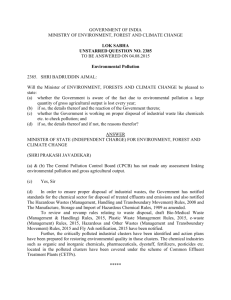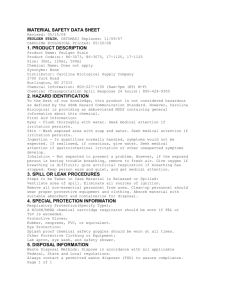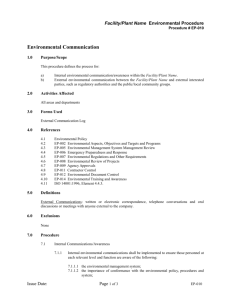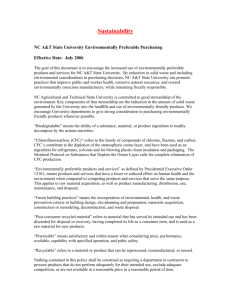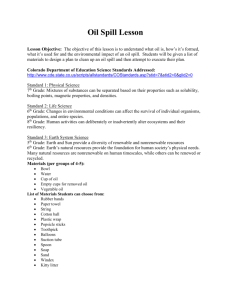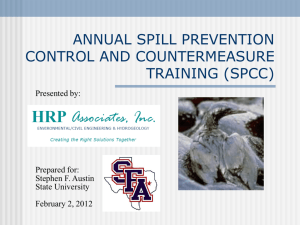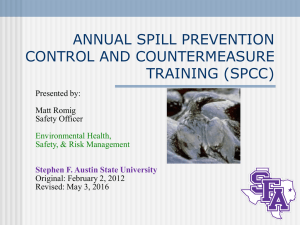ENERGY EFFICIENCIES
advertisement
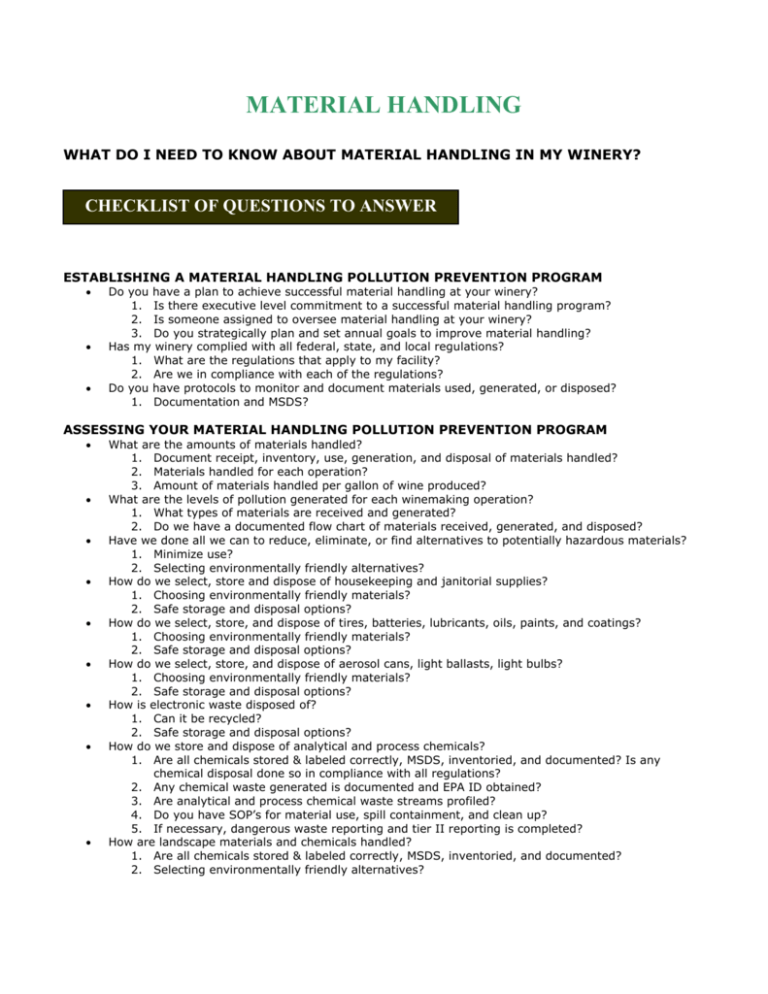
MATERIAL HANDLING WHAT DO I NEED TO KNOW ABOUT MATERIAL HANDLING IN MY WINERY? CHECKLIST OF QUESTIONS TO ANSWER ESTABLISHING A MATERIAL HANDLING POLLUTION PREVENTION PROGRAM Do you have a plan to achieve successful material handling at your winery? 1. Is there executive level commitment to a successful material handling program? 2. Is someone assigned to oversee material handling at your winery? 3. Do you strategically plan and set annual goals to improve material handling? Has my winery complied with all federal, state, and local regulations? 1. What are the regulations that apply to my facility? 2. Are we in compliance with each of the regulations? Do you have protocols to monitor and document materials used, generated, or disposed? 1. Documentation and MSDS? ASSESSING YOUR MATERIAL HANDLING POLLUTION PREVENTION PROGRAM What are the amounts of materials handled? 1. Document receipt, inventory, use, generation, and disposal of materials handled? 2. Materials handled for each operation? 3. Amount of materials handled per gallon of wine produced? What are the levels of pollution generated for each winemaking operation? 1. What types of materials are received and generated? 2. Do we have a documented flow chart of materials received, generated, and disposed? Have we done all we can to reduce, eliminate, or find alternatives to potentially hazardous materials? 1. Minimize use? 2. Selecting environmentally friendly alternatives? How do we select, store and dispose of housekeeping and janitorial supplies? 1. Choosing environmentally friendly materials? 2. Safe storage and disposal options? How do we select, store, and dispose of tires, batteries, lubricants, oils, paints, and coatings? 1. Choosing environmentally friendly materials? 2. Safe storage and disposal options? How do we select, store, and dispose of aerosol cans, light ballasts, light bulbs? 1. Choosing environmentally friendly materials? 2. Safe storage and disposal options? How is electronic waste disposed of? 1. Can it be recycled? 2. Safe storage and disposal options? How do we store and dispose of analytical and process chemicals? 1. Are all chemicals stored & labeled correctly, MSDS, inventoried, and documented? Is any chemical disposal done so in compliance with all regulations? 2. Any chemical waste generated is documented and EPA ID obtained? 3. Are analytical and process chemical waste streams profiled? 4. Do you have SOP’s for material use, spill containment, and clean up? 5. If necessary, dangerous waste reporting and tier II reporting is completed? How are landscape materials and chemicals handled? 1. Are all chemicals stored & labeled correctly, MSDS, inventoried, and documented? 2. Selecting environmentally friendly alternatives? How is fuel stored? 1. Is the amount and type of fuels stored inspected and documented? 2. Do you have SOP’s for the use and transfer of fuels to minimize spills? 3. Do you have a documented contingency plan for spill clean up and reporting? 4. Documented training of personnel for use, transfer, and spill clean up of fuels. 5. Is a SPCC required? 6. Do you have adequate secondary containment? 7. Is fuel storage protected from damage by vehicle traffic or fire? How do we ensure storm water is collected & discharged appropriately with no undue contamination? 1. If fuel or oil is stored on site, do you have a SPCC? 2. Are discharge permits required and adhered to? 3. Schematic of the storm water system, contributors, potential contaminants? How do we ensure process wastewater is collected & discharged to appropriate treatment facilities with no undue contamination of our facility or the environment? 1. If fuel or oil is stored on site, do you have a SPCC? 2. Documentation that wastewater system is designed to handle volume and type discharged? 3. Are discharge permits required and adhered to? 4. Schematic of the process wastewater system, contributors, potential contaminants? How do we handle spill containment and clean up? 1. Are spill containment supplies on hand? 2. Are there contingency plans in place to address each possible non-permitted spill type? EMPLOYEE SAFETY & TRAINING 1. 2. 3. 4. 5. Do employees receive workers right to know training? Do employees receive training on material handling and pollution prevention? Do employees receive annual reviews and further education on material handling? Do employees receive incentives for improving material handling and pollution prevention? Is there a forum for employee input to the material handling program? CONTINUOUS IMPROVEMENT Have you established an inherent system to continuously improve material handling? What opportunities are available to improve material handling and pollution prevention practices? Does my winery perform periodic audits and reviews of materials handling procedures? Does my winery sponsor a team of operating personnel to review and suggest improvements? RESOUCES: The Wine Institute http://www.wineinstitute.org/winerywaterguide LIVE http://www.liveinc.org/wineries.html Washington State Department of Ecology http://www.ecy.gov Washington State Department of Safety & Health http://www.lni.wa.gov/wisha Special Thanks To The Following For Their Contributions: Karl Boldt, Environmental Engineer
